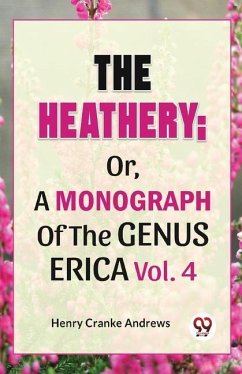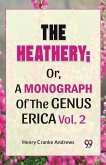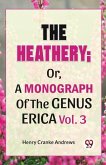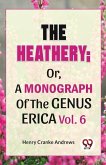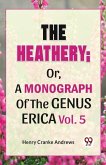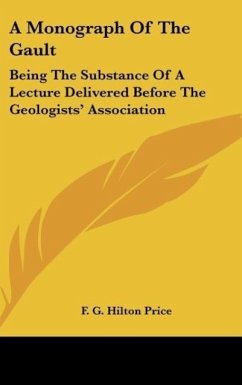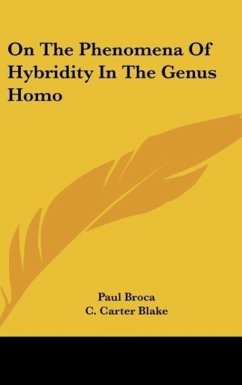Henry Cranke Andrews wrote a four-volume work titled "The Heathery; or, A Monograph of the Genus Erica" between 1804 and 1805. The Erica genus, sometimes referred to as heather or heath, is thoroughly examined in this book. The genus is indigenous to areas of Asia, Africa, and Europe, and Andrews' monograph details every species that was known at the time of publishing. Each species is given a thorough description, a picture, and a classification in the book. Volume 4 includes an index to the whole book as well as more images and descriptions of the Erica genus. The book has been cited by botanists and horticulturists for centuries and is regarded as a foundational work on heathers.

